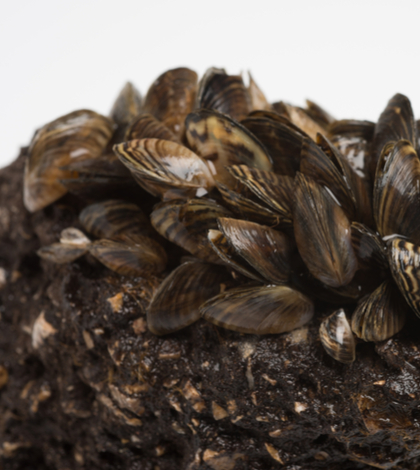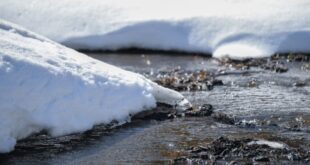Invasive mussels have now infested more than 30 California waterways and four state agencies are working collaboratively to help prevent further spread of both quagga and zebra mussels over the Memorial Day weekend. The California State Parks Division of Boating and Waterways (CSPDBW), the California Department of Fish and Wildlife (CDFW), the California Department of Water Resources (CDWR) and the California Department of Food and Agriculture (CDFA) are leading an outreach campaign to the threats of quagga and zebra mussels.
Invasive mussels are spread from one body of water to another by attaching to watercraft, equipment and nearly anything that has been in an infested waterbody. They multiply quickly, encrust watercraft and infrastructure, alter water quality and the aquatic food web, and ultimately impact native and sport fish communities. Invasive freshwater mussels are native to Eurasia. Microscopic juvenile mussels, invisible to the naked eye, are spread from infested waterbodies in water entrapped in boat engines, bilges, live-wells and buckets.
“The public plays a critical role in preventing the spread of quagga and zebra mussels,” said California Department of Fish and Wildlife (CDFW) Director Charlton H. Bonham. “The public should remember to Clean, Drain, and Dry their watercraft to prevent the further spread of quagga/zebra mussels, and other invasive species.”
The four collaborating agencies recommend the following steps are practiced both before traveling to and before leaving a waterbody to prevent spreading invasive mussels, improve your inspection experience and safeguard California waterways:
- CLEAN — inspect exposed surfaces and remove all plants and organisms,
- DRAIN — all water, including water contained in lower outboard units, live-wells and bait buckets, and
- DRY — allow the watercraft to thoroughly dry between launches. Watercraft should be kept dry for at least five days in warm weather and up to 30 days in cool weather.
To ensure watercraft are clean, drained and dry, many local agencies conduct boat inspections. The CDFW website provides a list of these inspection programs (www.wildlife.ca.gov/mussels). The CDFW website also provides additional information about the invasive mussels and what people can do to help prevent their spread in California. Prior to traveling, boaters should contact their intended destination waterbody directly to check for restrictions and requirements.
The California Department of Food and Agriculture (CDFA) Border Protection Stations also conduct inspections and travelers are advised and should be prepared for inspections at the state’s border stations. More than one million watercraft entering California have been inspected at the Border Protection Stations in the past nine years. Inspections can include a check of boats and personal watercraft, as well as trailers and all onboard items. Inspections are done by CDFA as well as CDFW and the California State Parks. Contaminated vessels and equipment are subject to decontamination, rejection, quarantine and/or impoundment.
The intent of inspections by state agencies is to preclude further spread of the invasive mussels but also because they can attach to and damage almost all submerged surfaces and result in the following:
- Jamming a boat’s steering equipment, putting occupants and others at risk
- Ruining a boat engine by blocking the cooling system and causing overheating
- Require frequent scraping and repainting of boat hulls
- Colonize all underwater substrates such as boat ramps, docks, lines and other underwater surfaces, causing them to require constant cleaning
- Impose large expenses to owners
CDFW has developed a brief video demonstrating the ease of implementing the clean, drain and dry prevention method.
In addition, a detailed guide to cleaning vessels of invasive mussels is available on the CDFW’s webpage. Information is also available on the Division of Boating and Waterways (DBW) website. Additionally, a toll-free hotline is available for those seeking information on quagga or zebra mussels at, (866) 440-9530.
 California Water News Daily Your Source For Water News in California
California Water News Daily Your Source For Water News in California


